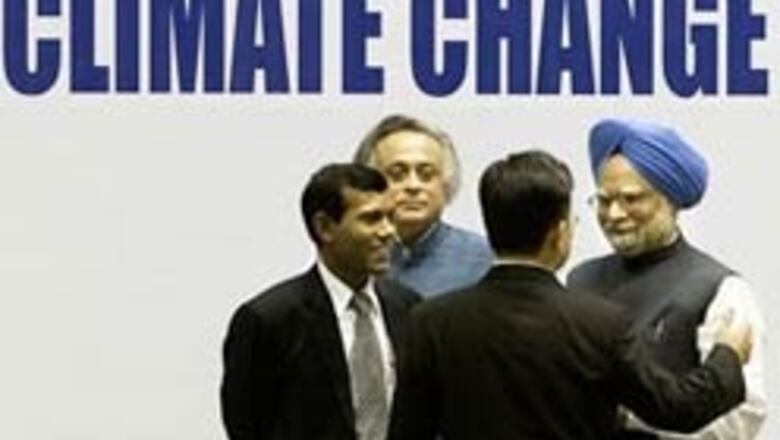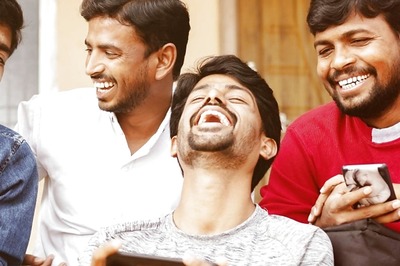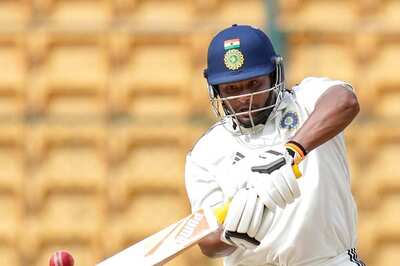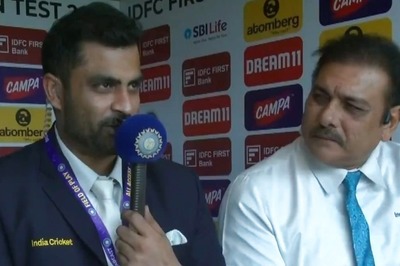
views
Copenhagen: India on Friday placed itself firmly on the side of the developing world as the Copenhagen Climate Summit reached its final hours, with Prime Minister Manmohan Singh saying any global regime to tackle climate change must take sustainable development into account.
"The outcome here at Copenhagen may well fall short of our expectations," Manmohan Singh said while addressing an "informal high level segment" of the summit. "Nevertheless, it can become a significant milestone. I support the call for further negotiations leading to a legal treaty (to tackle global warming) in 2010."
US President Barack Obama, Brazilian President Luiz Inacio Lula Da Silva, Chinese Premier Wen Jiabao and South African President Jacob Zuma were among the world leaders who also spoke at the session.
Manmohan Singh said: "As we embark on future negotiations, we'd do well to take stock of what we have learnt in the last two years. I draw 3 lessons."
"First, the vast majority of countries don't support any renegotiating or dilution of the UN Framework Convention on Climate Change (UNFCCC), in particular the principles of equity, the common but differentiated responsibilities and respective capabilities" to act against climate change."
The Prime Minister was reacting to concerted attempts by rich nations to push India to commit to a date by which its emissions of greenhouse gases (GHG) would peak. The emissions - mostly carbon dioxide and most of it from industrialised countries - are leading to climate change that is already affecting farm output, making droughts, floods and storms more frequent and more severe and raising the sea level.
To fight climate change, Manmohan Singh emphasised the importance of the Bali Action Plan worked out in 2007. "The plan commits us to enhancing the implementation of the convention (UNFCCC). To settle for something that would be seen as diminished expectation and diminished implementation would be a very wrong view to emerge out of this conference."
The Prime Minister also said the Kyoto Protocol - the current global treaty to tackle climate change, under which rich countries have to reduce their GHG emissions - should "continue to stand as valid legal instrument. Parties (countries) have to stick to their commitments."
The third major issue, Manmohan Singh said, was that "any new regime to tackle climate change has to take sustainable development into account. Equitable burden sharing must underlie the new regime." He reiterated his principle that "every citizen has equal entitlement to global atmospheric space".
India has a vital stake in the success of the negotiations, the Prime Minister said, "as we're among countries most likely to severely impacted by climate change". He listed the steps taken unilaterally by India - the eight missions including the ambitious solar mission under the National Action Plan on Climate Change, and the reduction in emissions intensity per unit of GDP by 20 per cent by 2020, compared to 2005.
"We will deliver (on these actions) regardless of the outcome of this conference," Manmohan Singh said, "but we can do even more if a supportive global climate regime is put in place."
"It is a difficult task. I hope we can all play positive and constructive roles to bridge differences for an equitable outcome. India won't be found wanting in this regard."
The speeches given by Wen and Zuma echoed those of Manmohan Singh, as the BASIC countries (Brazil, South Africa, India, China) had worked out their strategy just before the session started. The Brazilian president said the same thing, but in more colourful language.




















Comments
0 comment